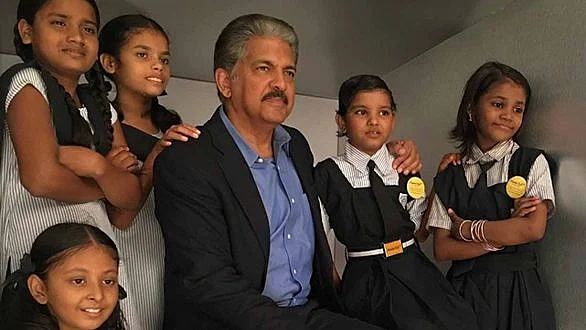Education is a fundamental human right of every child in India. It is also a privilege for a girl child in this country. This privilege is more pronounced in the interiors of India as one visits sub-urban and rural pockets where these nanhi kalis are pushed in quiet corners of the house. It is a grim reality. But, girls from underprivileged backgrounds often have limited or no access to formal education and learning. For some, their fate and future are decided before they are even born and without considering their wishes.
Governments, schools, NGOs, and other stakeholders in the education industry have formulated policies and tabled laws that have “allowed” every girl her right to education. Seven decades after independence, we have made significant progress in creating a level-playing field for our nanhi kalis. Inequality persists. Studies note how Covid-19 and the aftermath of the last two years have reversed some of this progress.
What was termed as “unexpected chuttis” due to school closures have become a nightmare for these children. The pandemic coupled with limited access to resources and poverty forced many children out of school. The problem is multi-layered and the current education system cannot prevent every child from falling through the cracks. For parents who are daily wage earners supporting their daughter’s “virtual education” is a broken dream. It was more convenient to get these nanhi kalis to look after the household responsibilities, take care of their siblings and look after the elderly in the family. Girls, therefore, became the bigger casualties of the pandemic, being forced to drop out of school.
According to UNESCO, almost 1.8 billion students globally have been affected by school closures as a result of the Covid-19 pandemic. Around 320 million of them are in India alone. And it has been estimated that of these 158 million are female students. Experts and policy analysts have consistently highlighted the repercussions of this unfolding crisis, advocating for immediate action. Unfortunately, there is no silver bullet solution to such a complex problem. But hope blooms eternal.
Organisations like Nanhi Kali are working on the grassroots level to support girls and their education. A Mahindra Rise initiative, this organisation supports girls from low-income families to complete ten years of formal schooling.
The latest film by Project Nanhi Kali shows how #EveryGirlMatters. Featuring the tale of two Lajjos, this movie highlights how Project Nanhi Kali helps empower little girls by providing them after school support to continue their education.
Now, the Nanhi Kali team has doubled down on its efforts to provide quality digital education to girls hailing from the remotest corners of the country. Every girl in the Nanhi Kali project has received academic support and has access to an adaptive learning software via digital tablets and through a platform called Mindspark. The software is pre-loaded onto their digital tablets, allowing them access to lessons and education in just one click. They have also received an annual kit which comprises a school bag, stationery, and a pullover/raincoat. With 45.6% of teenage girls in India still following unhygienic menstrual practices* a 12-month supply of branded sanitary napkins is included in each kit to help girls attend school with dignity when they resume physical classes.
The project has already impacted the lives of over 450,000 girls from underserved communities across the country. More needs to be done to help other such nanhi kalis who are falling through the cracks of the education system.
Visit this link if you want to support the education of a little girl.
